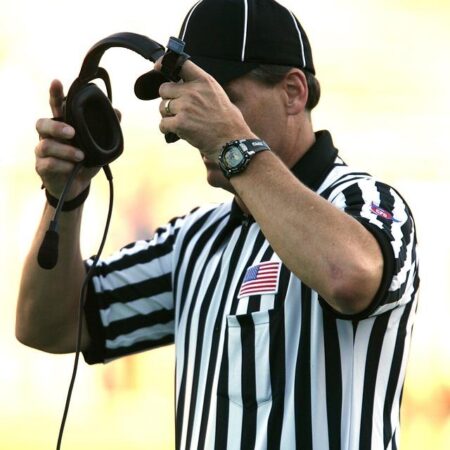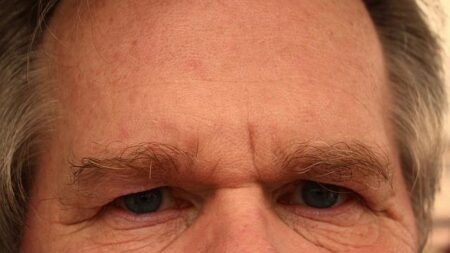In a pioneering move to enhance athlete well-being, George Mason University’s College of Public Health and Athletics Department have joined forces to provide comprehensive support for student-athletes. This innovative partnership aims to address not only physical performance but also the mental, emotional, and social health of athletes, fostering a holistic approach that underscores the university’s commitment to cultivating both excellence and resilience on and off the field.
College of Public Health and Athletics Join Forces to Enhance Athlete Wellbeing
In a groundbreaking collaboration, George Mason University’s College of Public Health and Athletics Department have united to prioritize the holistic wellbeing of their student-athletes. This partnership brings together experts in health education, nutrition, mental wellness, and sports medicine to create an integrated support system that addresses both physical and psychological needs. By combining resources and knowledge, the initiative aims to enhance athlete performance while fostering resilience and long-term health beyond the playing field.
Key components of this initiative include:
- Personalized health assessments for early identification of risks and tailored intervention plans.
- Mental health outreach programs that reduce stigma and provide confidential counseling services.
- Nutrition workshops designed to optimize energy, recovery, and overall wellness.
- Injury prevention and rehabilitation protocols informed by the latest public health research.
| Support Area | Service Highlights |
|---|---|
| Mental Health | Confidential counseling, stress management workshops |
| Physical Health | Injury prevention, personalized fitness plans |
| Nutrition | Diet planning, performance nutrition education |
| Community Engagement | Peer support groups, wellness challenges |
Integrating Physical and Mental Health Services for Comprehensive Athlete Support
George Mason University’s groundbreaking collaboration bridges the gap between physical training and mental wellness, setting a new standard for athletic care. Student-athletes now benefit from integrated support systems where sports medicine specialists, psychologists, and wellness coaches work side by side to ensure every facet of health is addressed. This holistic approach not only enhances performance but also fosters resilience, emotional balance, and long-term well-being by treating the athlete as a whole person rather than focusing solely on physical metrics.
Key components of this initiative include:
- Comprehensive Assessments: Physical and psychological evaluations conducted simultaneously to tailor personalized care plans.
- Collaborative Care Teams: Regular case conferences facilitate seamless communication among health providers.
- Proactive Mental Health Workshops: Focused on stress management, coping strategies, and mental toughness training.
- Real-Time Monitoring: Technology-driven tracking of both injury recovery and mental health indicators.
| Service | Provider | Benefit |
|---|---|---|
| Injury Prevention | Physiotherapists | Reduced downtime and faster recovery |
| Stress Management | Behavioral Therapists | Enhanced focus and emotional stability |
| Nutrition Counseling | Dietitians | Optimized energy levels for peak performance |
| Mindfulness Training | Wellness Coaches | Improved mental clarity and anxiety reduction |
Innovative Programs Foster Resilience and Academic Success Among Student-Athletes
George Mason University’s collaborative efforts between the College of Public Health and Athletics are breaking new ground by introducing dynamic programs designed to build resilience and enhance academic achievement for student-athletes. These initiatives emphasize mental wellness, time management, and nutrition, combining the expertise of public health professionals with athletic coaches to provide a comprehensive support system. Workshops focus on stress reduction techniques and cognitive strategies that empower athletes to navigate the rigorous demands of both their sport and studies.
Key components of the program include personalized mentoring and access to specialized resources, fostering an environment where holistic development is prioritized. The partnership also tracks student-athletes’ progress through tailored assessments, ensuring interventions are data-driven and impactful. Below is a snapshot of the program’s core pillars:
| Program Pillar | Focus Area | Outcome Goal |
|---|---|---|
| Mental Health Support | Stress Management & Resilience | Improved Coping Skills |
| Academic Coaching | Time Management & Study Habits | Higher GPA & Better Retention |
| Nutrition Guidance | Personalized Meal Planning | Enhanced Physical Performance |
- Integrated Workshops: Led by experts in public health and sports psychology.
- One-on-One Mentorship: Personalized strategies to balance athletics and academics.
- Performance Tracking: Monitoring growth and adapting support plans accordingly.
Recommendations for Strengthening Collaboration and Expanding Holistic Care Initiatives
To maximize the impact of this groundbreaking partnership, stakeholders should prioritize creating seamless communication channels between public health experts and athletic staff. Establishing regular interdepartmental workshops and joint training sessions can foster mutual understanding and accelerate the adoption of comprehensive well-being strategies. Additionally, integrating mental health professionals and nutritionists into athletic programs will ensure that athletes benefit from a fully rounded support system, addressing the physical, emotional, and social dimensions of their performance.
Investment in data sharing platforms and collaborative research initiatives will also be crucial for tracking holistic care outcomes and refining intervention methods. Resources should be allocated to enhance accessibility and inclusivity within these programs, ensuring that every athlete receives personalized attention regardless of their sport or skill level. Below is a snapshot of recommended focus areas to bolster collaboration and expand holistic care efforts:
- Cross-disciplinary Training: Engage faculty and coaches in joint learning to align health sciences with athletic training.
- Integrated Support Teams: Create multidisciplinary groups featuring psychologists, dietitians, and public health professionals.
- Technology Enhancement: Use shared digital platforms for monitoring athlete health metrics and facilitating communication.
- Community Engagement: Involve athletes in wellness program design to increase participation and feedback.
| Focus Area | Goal | Key Action |
|---|---|---|
| Communication | Streamline information flow | Monthly interdepartmental meetings |
| Training | Enhance staff expertise | Quarterly workshops |
| Support Systems | Expand holistic athlete services | Integrate health professionals |
| Data Sharing | Improve outcome tracking | Adopt centralized platforms |
Future Outlook
As George Mason University continues to champion a holistic approach to student-athlete development, the collaboration between the College of Public Health and Athletics marks a significant stride toward fostering wellness both on and off the field. By integrating expertise in health sciences with athletic programs, this partnership not only enhances physical performance but also prioritizes mental and emotional well-being. As the initiative unfolds, Mason sets a compelling example of how universities can unite diverse disciplines to support their athletes comprehensively, preparing them for success in sports and in life.





